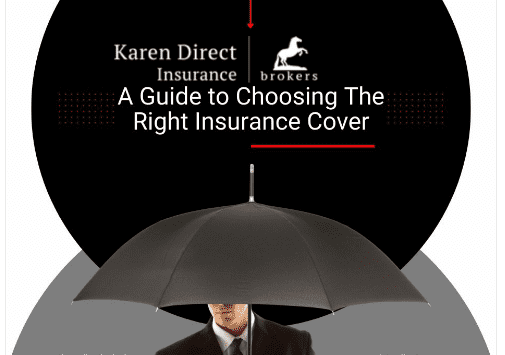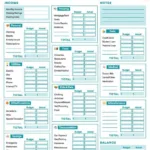Table of Contents
In today’s digital age, buying car insurance online has become the preferred method for many drivers. The process is simple, convenient, and offers numerous advantages over traditional methods.
Convenience and Speed
- 24/7 Accessibility: Buying car insurance online allows you to shop for policies and compare quotes at any time, day or night, without being restricted to business hours.
- Faster Processing: Online platforms often provide instant quotes and allow you to purchase your policy immediately, eliminating the need for lengthy paperwork or phone calls.
Wider Range of Options
- Multiple Quotes: Online platforms allow you to compare quotes from a variety of insurance providers side-by-side, ensuring you find the best coverage and rates for your needs.
- Customization: You can easily adjust coverage options and deductibles online to tailor your policy to your specific requirements and budget.
Cost Savings
- Competitive Rates: Online insurance providers often have lower overhead costs, which can translate to more competitive premiums for consumers.
- Discounts: Many online platforms offer various discounts, such as multi-policy discounts, safe driver discounts, and discounts for paying your premium in full.

How to Buy Car Insurance Online
Buying car insurance online is a convenient and efficient way to find the best coverage for your needs. Here’s a step-by-step guide to help you navigate the process:
1. Gather Your Information:
Before you start comparing quotes, gather the following information:
Driver’s license: This will be used to verify your driving history.
Vehicle identification number (VIN): This will be used to identify your car and determine its insurance risk.
Current insurance policy: If you have an existing policy, have it handy for comparison.
Personal information: This includes your name, address, date of birth, and social security number.
Gather Necessary Information
Before you start shopping for car insurance online, gather the following information:
* Driver’s license information for all drivers
* Vehicle information (make, model, year, VIN)
* Driving history
* Current insurance information (if applicable)
Research and Compare Quotes
Researching and Comparing Car Insurance Quotes Online
Once you have gathered your information, it’s time to start researching and comparing quotes from multiple insurers.
Reputable Online Car Insurance Comparison Tools:
Here are some reputable online car insurance comparison tools that you can use to compare quotes from multiple insurers:
- The Zebra:
Pros:
User-friendly interface.
Compares quotes from a wide range of insurers.
Provides personalized recommendations.
Offers educational resources on car insurance.
Cons:
May not include all insurers in your area.
- NerdWallet:
Pros:
Comprehensive comparison tool.
Provides detailed information on each insurer.
Offers side-by-side comparisons of policies.
Includes educational resources on car insurance.
Cons:
May not be as user-friendly as other tools.
- Progressive:
Pros:
Easy-to-use quote tool.
Offers a variety of discounts.
Provides a personalized quote based on your driving history and vehicle information.
Cons:
Only compares quotes from Progressive.
- Geico:
Pros:
Simple quote process.
Offers competitive rates.
Provides a variety of discounts.
Cons:
Only compares quotes from Geico.
- State Farm:
Pros:
User-friendly interface.
Offers a variety of discounts.
Provides a personalized quote based on your driving history and vehicle information.
Cons:
Only compares quotes from State Farm.
Additional Tips:
- Read reviews: Before using an online comparison tool, read reviews to get insights into its accuracy, user experience, and customer service.
- Compare multiple tools: Don’t rely on just one comparison tool. Use multiple tools to get a comprehensive overview of your options.
- Consider your needs: When comparing quotes, consider your individual needs and choose the policy that provides the best coverage at the best price.
- By using these reputable online comparison tools, you can save time and money on your car insurance.
Visit Insurer Websites Directly:
In addition to using comparison websites, you can also visit the websites of individual insurers to get quotes. This can be helpful if you have a specific insurer in mind or want to get more detailed information about their coverage options.
Consider Your Needs:
When comparing quotes, it’s important to consider your individual needs. This includes your driving history, the value of your car, and the amount of coverage you need. Don’t just choose the cheapest policy; make sure you are getting the coverage you need at a price you can afford.
Read Reviews:
Before you purchase a policy, be sure to read reviews of the insurer. This can give you insights into their customer service, claims process, and overall reputation.
Ask Questions:
If you have any questions about a particular policy or insurer, don’t hesitate to ask. You can contact the insurer directly or speak with an insurance agent.
Choose Your Policy and Purchase
Finding the Right Insurance Agent: Your Guide to Personalized Coverage
Choosing the right car insurance policy can be overwhelming, especially with the abundance of options available. While online comparison tools offer convenience, sometimes you need a personal touch to navigate the complexities of insurance. That’s where an insurance agent comes in.
Finding the Right Fit:
1. Referrals:
Start by asking friends, family, and colleagues for recommendations. Their positive experiences can guide you toward a trustworthy agent.
2. Online Search:
Websites like the Independent Insurance Agents & Brokers of America (IIABA) allow you to search for agents based on location and specialization.
3. Your Current Insurer:
If you’re already insured, your current provider might be able to recommend an agent specializing in car insurance.
4. Independent Agents:
Independent agents represent multiple companies, giving you access to a wider range of options and competitive rates.
5. Consider Your Needs:
Do you have a complex insurance situation? Look for an agent with experience in similar cases.
Questions to Ask:
- Experience: How long have you been in the insurance business?
- Specialization: What types of insurance do you focus on?
- Representation: Are you independent or affiliated with a specific company?
- References: Can you provide references from satisfied clients?
- Policy Selection Process: How do you help clients choose the right policy?
- Claims Handling: How do you handle claims?
Benefits of an Insurance Agent:
- Personalized Guidance: Agents understand your individual needs and recommend suitable coverage.
- Expertise: They navigate complex insurance terms and explain them clearly.
- Market Knowledge: They have access to multiple companies and can find the best rates.
- Claims Assistance: They help you file claims and advocate for your interests.
- Long-Term Relationship: They build a relationship with you, ensuring your coverage evolves with your changing needs.
- Investing in the Right Agent:
Finding the right insurance agent is an investment in your peace of mind. They’ll guide you through the process, answer your questions, and ensure you have the right coverage for your car and budget. By taking the time to find a qualified and experienced agent, you’ll have a valuable resource to navigate the world of car insurance with confidence.
Tips for Buying Car Insurance Online
Compare quotes from multiple providers to ensure you’re getting the best deal.
Read reviews of insurance companies before making a decision.
Understand the coverage options and choose the ones that best suit your needs.
Be honest about your driving history to avoid any issues with your policy.
Take advantage of available discounts.
Additional Considerations When Buying Car Insurance Online
While buying car insurance online offers numerous benefits, there are also some additional factors to keep in mind:
Researching the Insurance Company: A Guide to Making an Informed Decision
Once you have gathered quotes and narrowed down your options, it’s important to research the insurance companies you are considering. This will help you choose a company that is reputable, financially stable, and has a good track record for customer service and claims handling.

Here are some steps to research an insurance company:
1. Check Financial Ratings:
AM Best: AM Best is a leading credit rating agency that assesses the financial strength and stability of insurance companies. Look for companies with an A rating or higher.
Standard & Poor’s (S&P): S&P is another credit rating agency that provides financial strength ratings for insurance companies. Look for companies with an AA rating or higher.
2. Read Customer Reviews:
Consumer Reports: Consumer Reports is an independent organization that publishes reviews of insurance companies based on customer satisfaction surveys.
J.D. Power: J.D. Power is another independent organization that conducts customer satisfaction surveys and publishes rankings of insurance companies.
Online Reviews: Read reviews on websites like Yelp, Google Reviews, and the Better Business Bureau (BBB) to get insights into customer experiences with the insurance company.
3. Check Complaint Ratios:
National Association of Insurance Commissioners (NAIC): The NAIC maintains a database of consumer complaints against insurance companies. You can search for the company you are considering and see how many complaints have been filed against them.
State Insurance Department: Your state insurance department may also have a database of consumer complaints against insurance companies.
4. Contact the Insurance Company:
Customer Service: Call the insurance company’s customer service line and ask questions about their claims process, customer service policies, and any other concerns you may have.
Agent Availability: Ask about the availability of agents in your area and how you can contact them for assistance.
5. Consider Your Needs:
When researching an insurance company, consider your individual needs. For example, if you have a complex insurance situation, you may want to choose a company with a strong reputation for customer service and claims handling.
Understanding Car Insurance Coverage Options: A Comprehensive Guide
Car insurance can be confusing, especially with the abundance of coverage options available. Understanding these options is crucial to choosing the right policy for your needs. Here’s a comprehensive guide to help you navigate the world of car insurance coverage:
1. Liability Coverage:
Bodily Injury Liability: Covers expenses related to injuries you cause to others in an accident.
Property Damage Liability: Covers damage you cause to other people’s property in an accident.
Minimum Required Coverage: Most states require drivers to carry a minimum amount of liability coverage.
2. Collision Coverage:
Covers damage to your car caused by an accident, regardless of who is at fault.
Typically has a deductible, which is the amount you will have to pay out-of-pocket before your insurance kicks in.
3. Comprehensive Coverage:
Covers damage to your car caused by events other than an accident, such as theft, vandalism, or weather.
Typically has a deductible, which is the amount you will have to pay out-of-pocket before your insurance kicks in.
4. Personal Injury Protection (PIP):
Covers medical expenses for you and your passengers in the event of an accident, regardless of who is at fault.
Available in some states as “no-fault” insurance.
5. Uninsured/Underinsured Motorist Coverage:
Covers you if you are hit by a driver who does not have insurance or does not have enough insurance to cover your damages.
6. Additional Coverage Options:
Rental Reimbursement: This covers the cost of renting a car if your car is damaged or stolen.
Roadside Assistance: Covers the cost of towing, jump-starts, and other roadside services.
Gap Coverage: This covers the difference between the value of your car and the amount you owe on your loan if your car is totaled.
7. Consider Your Needs:
The amount of coverage you need will depend on several factors, including your state’s minimum requirements, your driving history, and the value of your car.
8. Consult an Insurance Agent:
If you have any questions about coverage options or need help choosing the right policy, consult an insurance agent. They can help you understand your needs and recommend the best coverage for your situation.
By understanding car insurance coverage options, you can make an informed decision and choose the policy that provides the right protection for you and your vehicle.
Be Aware of Online Scams
- Verify Website Security: Ensure the website you’re using is secure and has a valid SSL certificate.
- Beware of Unrealistic Offers: If a deal seems too good to be true, it probably is.
- Research the Company: Always research the insurance company before providing any personal information or making a payment.
The Future of Buying Car Insurance Online
The online car insurance market is continuously evolving, with new technologies and trends emerging.
Mobile Apps: Many insurance companies now offer mobile apps that allow you to manage your policy, file claims, and access roadside assistance.
Usage-Based Insurance: This type of insurance tracks your driving habits and adjusts your premiums accordingly, rewarding safe drivers with lower rates.
Artificial Intelligence: AI is being used to streamline the quoting and claims processes, making them faster and more efficient.
Conclusion
Buying car insurance online has become the preferred method for many drivers due to its convenience, affordability, and wide range of options. By understanding the process, considering the additional factors mentioned, and staying informed about emerging trends, you can confidently navigate the online insurance market and find the best car insurance policy for your needs.







